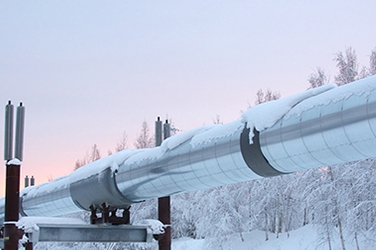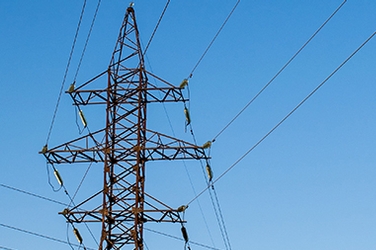New Mexico Gas Company, Inc. Challenges Transwestern Pipeline Company

We represented New Mexico Gas Company in Transwestern Pipeline Company’s most recent general pipeline rate case at the Federal Energy Regulatory Commission (FERC). In addition to contesting the pipeline’s proposed rates and other changes to the pipeline’s non-rate terms and conditions, New Mexico Gas Company raised serious public safety concerns associated with the pipeline’s gas quality standards, particularly its proposal to allow gas with a high heating value (as measured in BTUs per cubic foot) on its system. The rate case was settled, with the gas quality standards and certain other issues set for separate stand-alone proceedings. The separate proceedings, including a technical conference held at the FERC, resulted in adoption in Transwestern’s tariff of the high heating value for gas that New Mexico Gas Company advocated.
Win at the US Supreme Court on Wholesale Compensation for Demand Response Customers

For fifteen years, the Federal Energy Regulatory Commission (FERC) has allowed wholesale energy market operators to compensate retail customers for reducing demand, which reduces wholesale load and the wholesale prices paid to generators. When FERC adopted a rule to increase wholesale compensation to these “demand response” customers, a national coalition of generation facility owners challenged the rule in court. The U.S. Court of Appeals for the District of Columbia Circuit ruled that FERC has no jurisdiction to approve compensation by retail customers for demand reductions. The U.S. Supreme Court overturned this ruling and let the FERC rule stand.
With a strong grasp of the energy market, we were actively involved in the appellate and related proceedings counseling, and aggressively representing PJM Interconnection, L.L.C, (PJM) in efforts to avoid, minimize, and/or mitigate the potentially significant and adverse impacts of the Court of Appeals ruling on their markets. Our appellate advocacy for PJM included preparation of a brief to the D.C. Circuit supporting FERC’s jurisdiction, requesting rehearing en banc from the D.C. Circuit to apprise it of the potentially extensive and adverse impacts on PJM’s wholesale markets, and preparation of a brief to the U.S. Supreme Court seeking reversal of the EPSA decision. Additionally, we requested and obtained a PJM tariff waiver from FERC to limit the market’s dependence on demand response; and developed, filed and litigated at FERC alternative “demand response” tariff rules that would avoid the jurisdictional defect identified by the court.
Landmark Opinions Issued in TAPS Rate Cases

Our long representation of Anadarko Petroleum Corporation and Tesoro Alaska Company in the Trans Alaska Pipeline System (TAPS) rate cases resulted in two landmark orders before the Federal Energy Regulatory Commission (FERC) ruling in favor of Anadarko’s and Tesoro’s position on all significant issues.
As background, the Trans Alaska Pipeline System is one of the most important crude oil pipelines in North America, extending 800 miles from Alaska’s North Slope to the port at Valdez, Alaska. TAPS is owned by affiliates of the largest oil producers in Alaska, including BP Pipelines (Alaska) Inc., ConocoPhillips Transportation Alaska Inc., and ExxonMobil Pipeline Co. (collectively the TAPS Carriers).
FERC Opinion No. 502
After service commenced on TAPS in 1977, proceedings ensued at FERC to establish transportation rates under the Interstate Commerce Act. In 1985, following protracted litigation, the TAPS Carriers and the State of Alaska reached a settlement that governed annual TAPS rate filings for nearly 20 years. In 2005, Wright & Talisman along with Alaska co-counsel, on behalf of Anadarko and Tesoro, mounted a challenge to the settlement rates as unreasonable and excessive.
After settlement negotiations were unsuccessful, the parties engaged in extensive discovery and weeks of hearings before a Presiding Administrative Law Judge. The Judge ruled in favor of Anadarko’s and Tesoro’s positions on nearly every rate issue. The Judge ruled that the settlement methodology produced excessive rates that were not cost-justified and therefore were unjust and unreasonable. The Judge’s decision was affirmed in all material respects by FERC in Opinion No. 502, which was upheld by the D.C. Circuit. Opinion No. 502 ended two decades of TAPS ratemaking under settlement principles ruled to be unreasonable and ushered in a new era of cost-based ratemaking for TAPS.
FERC Opinion No. 544
The TAPS Carriers’ “Strategic Reconfiguration Project” is the most significant project conducted on TAPS since the original construction of the pipeline. The project involved replacing existing gas-fired turbines with electric turbines, automating pump stations, and replacing control systems. While initially authorized at a cost of approximately $220 million, actual costs have escalated to nearly $1 billion.
On behalf of Anadarko and Tesoro, and with Alaska co-counsel, Wright & Talisman challenged the Strategic Reconfiguration Project on prudence and other grounds at FERC and the Regulatory Commission of Alaska. We also challenged the TAPS Carriers’ inclusion in rates of certain out-of-period ad valorem tax costs and raised other general ratemaking issues. FERC and the Regulatory Commission of Alaska held concurrent hearings over many months in Washington, D.C. and Anchorage, Alaska. The FERC Administrative Law Judge issued a 541-page Initial Decision, which applies to the FERC-jurisdictional rates. The decision found for Anadarko and Tesoro on all major issues and adopted the prudence remedy proposed by Anadarko and Tesoro, which caps cost recovery for the project at approximately $230 million and disallows hundreds of millions in project costs above that level. FERC upheld the Judge’s decision in all significant respects, except that it allowed a narrow exception for an unfinished pump station, subject to principles of res judicata. Opinion No. 544 stands as one of the largest disallowances of costs from rates in the history of FERC.
On February 29, 2016, the Regulatory Commission of Alaska adopted FERC’s findings concerning the Strategic Reconfiguration Project and similarly disallowed collection of the disputed ad valorem tax costs. The Regulatory Commission of Alaska’s decision applies to the in-state TAPS rates.











